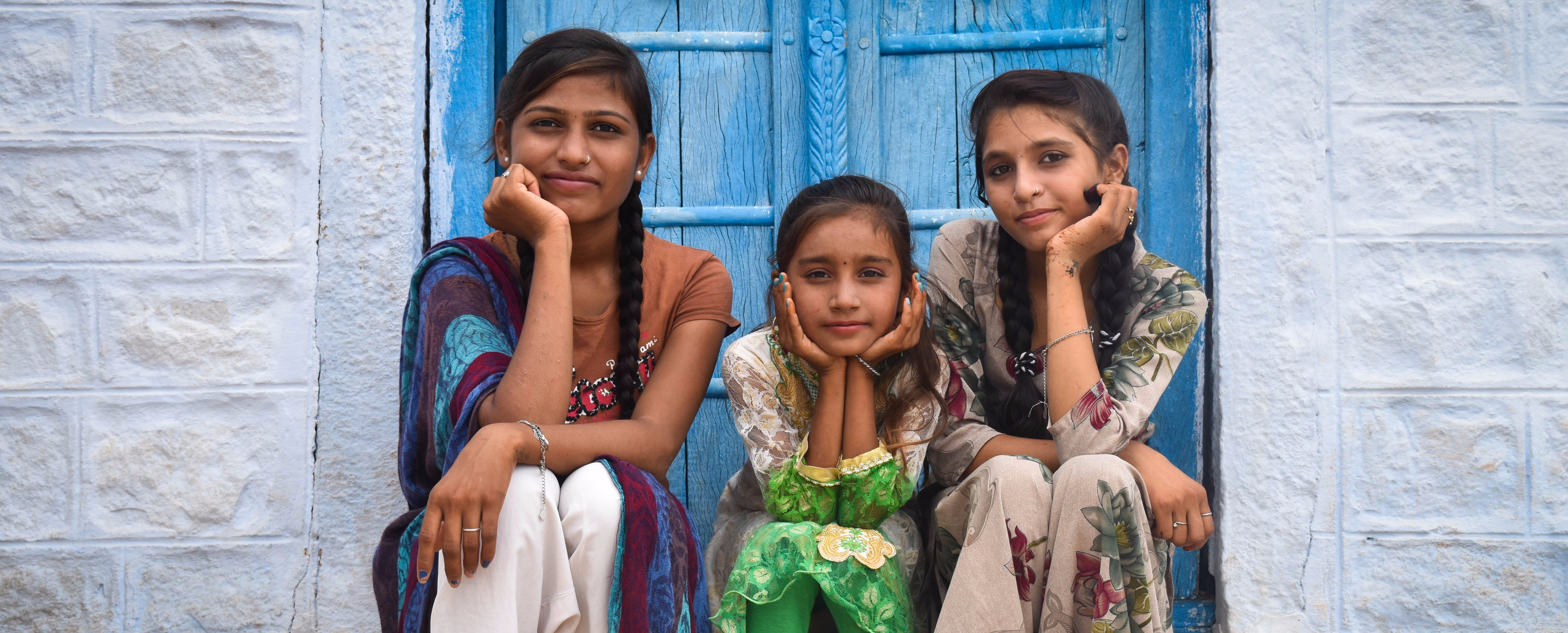
“I would say that if the village perishes, India will perish too. India will be no more India. Her own mission in the world will get lost. The revival of the village is possible only when it is no more exploited.” – Mahatma Gandhi
Who we are
The Institute for Philanthropy and Humanitarian Development (IPHD) is a nonprofit based in Jodhpur, Rajasthan that engages in the development of Indian rural villages through projects in four main programs: Saheli Women, Skills Development, Girls’ Education, and Female Health.
Founded in 2013, by Jodhpur native Madhu Vaishnav, IPHD offers skills development to the ladies in rural India. In 2014, IPHD adopted the village of Bhikamkor, a traditionally conservative and impoverished community approximately 65 kilometers north of Jodhpur. In Bhikamkor, IPHD runs a community center. In just a few years, women in Bhikamkor, with IPHD’s help, have made remarkable strides in rising above the poverty line and bettering their community. In 2020, during the Covid pandemic, Madhu opened a second center in Kaliberi, where most ladies are refugees from Pakistan. They left their homes for the hope of a better future and found it in the community center.
The Saheli Women is a social enterprise, recognized as an ethical fashion atelier which gives a platform for cooperation between international brands and the ladies of the studios. We want to provide sustainable development, therefore, all the materials we are using to create our beautiful garments are also of a high level of sustainability.
Saheli, the Hindi word for “female friend”, reflects our commitment to fostering a safe space for women and their children. The Saheli Community Center, which also provides a kitchen with electricity and a bathroom with plumbing, has a zero-tolerance policy against gender, religious and caste discrimination.
Mission Statement
The purpose of IPHD is to enable women empowerment through skill development and girls’ education which has proven to be a sustainable model to generate financial independence. IPHD is aiming to create rural development through women empowerment while promoting sustainable practices and to ultimately alleviate poverty.
Vision
IPHD’s vision is for a sustainable and equitable India free from poverty.
Context
Rajasthan
Located in the northern region of India, Rajasthan is a state famous for its historical forts and palaces. As the seventh most populous of India’s 29 states, Rajasthan is home to 69 million people, 10 million of whom are classified as poor. However, thanks to its strong economic growth, Rajasthan’s poverty rate is declining faster than any other Indian state.
Despite Rajasthan’s growth, gender inequality persists in the state, especially in rural, lower caste and other marginalized communities. Rajasthan is one of three Indian states with the greatest educational gender disparity in the country, which is marked by a low rate of girls enrolling in school and a high rate of girls dropping out.
The dropout rates are mostly due to two reasons: either girls must take labor jobs to contribute to their family incomes or they must get married, sometimes at just 12 years old. In rural Rajasthan, child marriage is customary and nearly one out of five teen girls become mothers. Teen motherhood is linked to low education levels, poverty, inadequate nutrition, health issues and maternal mortality.
Bhikamkor
In 2014, IPHD adopted the village of Bhikamkor, a rural community approximately 65 kilometers north of Jodhpur, Rajasthan’s second biggest city and the location of the IPHD main office.
With a population of approximately 5,000 people, Bhikamkor is a 500-year-old village on the edge of the Thar Desert that remains traditionally conservative and closely observes the caste system.
Economic development is slow in Bhikamkor due to low education and skill levels, resulting in widespread poverty. Diseases and illnesses such as anemia, malnutrition and dental and gynecologic issues are prevalent due to inadequate health facilities and limited access to care, along with a lack of basic hygiene and sanitation awareness.
Bhikamkor’s community is male-dominated and gender inequality is pervasive in all daily activities. Girls often drop out of school to get married, have children and take care of household responsibilities. An estimated 70% of girls in the village do not receive a secondary education (compared to approximately 40% of boys).
Kaliberi
In 2020, during the COVID-pandemic, IPHD adopted the village of Kaliberi. When first visiting the village, Madhu saw how much the women could be empowered by starting a community center. The women who live in Kaliberi are all refugees from Pakistan. They fled their country, together with their family. It’s been really hard for them to find a job and create a good new life. While developing the skills and starting working in the center, the women are able to make such big change to their lives. They are able to provide for themselves and their families, ensuring a better future for their children.
